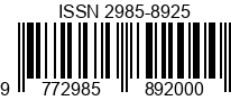Dilematika Nafkah Madiyah Anak Dalam Putusan Pengadilan Agama Tanjungkarang Nomor 0846/Pdt.G/2015/PA.Tnk
DOI:
https://doi.org/10.54298/tarunalaw.v1i01.80Keywords:
māḍiyah maintenance, children, religious courtAbstract
Applications for māḍiyah maintenance or debt support, especially for children, are often rejected by the courts. This is based on the existence of jurisprudence based on the decision of the Supreme Court Number 608/K/AG/2003. One example is the decision of the Tanjungkarang Religious Court Number 0846/Pdt.G/2015/PA.Tnk. This research is normative legal research using a case approach. Sources of research data consist of primary, secondary, and tertiary legal materials. The data obtained were then analyzed using the content analysis method. Decision Number 0846/Pdt.G/2015/PA.Tnk. shows that the legal basis for refusing claims for māḍiyah maintenance for children in divorce is legal considerations as considered by the Supreme Court in its decision rejecting lawsuits for past maintenance for children, namely that the father's obligation to provide for his child is lil-intifāʻ, not lit-tamlīk, then a person's negligence fathers who do not provide for their children cannot be sued. This leads to injustice because māḍiyah maintenance is not granted to children. This will certainly be detrimental to the life and welfare of the child, who in other circumstances can become a shield for a father who neglects to provide for his child. Māḍiyah livelihood is a form of protection for the rights of divorced women and children born during the marriage. This is in line with the verses of the Koran and hadith which talk about the obligation of a father to his wife and children to provide maintenance. In addition, such provisions can also be found in child protection legal instruments in force in Indonesia. The law should pay more attention to the lives of children by issuing judges' decisions that are good for them so that it will close gaps for husbands or fathers who can be negligent in their obligations, and protect divorced women from a double burden.
References
A, Salma, Elfia A, and Afifah Djalal. “Perlindungan Hukum Bagi Perempuan Dan Anak (Analisis Putusan Hakim Tentang Nafkah Madhiyah Pada Pengadilan Agama Di Sumatera Barat.” Istinbáth: Jurnal Hukum Dan Ekonomi Islam 16, no. 1 (2017): 106–208.
Abdullah, Sulaiman. Sumber Hukum Islam Permasalahan Dan Fleksibilitasnya. Jakarta: Sinar Grafika, 1995.
Al-Bukhārī, Abū ʻAbdillāh Muḥammad Ibn Ismāil. Ṣaḥīḥ Al-Bukhārī. Beirut: Dār al-Fikr, 1981.
Amiriyyah, Nuriel. “Nafkah Madliyah Anak Pasca Perceraian: Studi Putusan Mahkamah Agung Republik Indonesia Nomor 608/K/AG/2003.” Jurisdictie: Jurnal Hukum Dan Syariah 6, no. 1 (2015): 1–15. https://doi.org/10.18860/j.v6i1.4085.
Basir, Cik. “Menolak Gugatan Nafkah Madhiyah Anak Karena Lil Intifa’, Relevankah Dengan Ketentuan Islam Dan Hukum Positif?” Badilag Mahkamah Agung, 2014.
Fanani, Ahmad. “Hak Ex Officio Hakim: Studi Kasus Perceraian Di Pengadilan Agama Sidoarjo No. 3513 Th. 2015.” Tsaqofah 13, no. 2 (2017): 339–52. https://doi.org/10.21111/tsaqafah.v13i2.1091.
Indonesia, Kementerian Agama Republik. Al-Qur’anulkarim Maqdis: Mushaf Al-Qur’an Tajwid Dan Terjemah. Bandung: Cordoba Internasional-Indonesia, 2013.
Kau, Sofyan A.P. Fikih Alternatif. Yogyakarta: Mitra Pustaka, 2013.
Makarao, Mohammad Taufik. Hukum Perlindungan Anak Dan Penghapusan Kekerasan Dalam Rumah Tangga. Jakarta: Rineka Cipta, 2014.
Muhdlor, Ahmad Zuhdi, and M. Natsir Asnawi. “Apakah Nafkah Madliyah (Lampau) Anak Yang Tidak Terbayarkan Mutlak Lilintifa’? (Kajian Terhadap Kaidah Yurisprudensi MA RI Nomor 608 K/Ag/2003).” Badilag Mahkamah Agung, 2013.
Pati, Pengadilan Agama. “Yurisprudensi Pengadilan Agama,” 2016.
Penyusun, Tim. Undang-Undang Dasar Negara Republik Indonesia Tahun 1945 Dan Undang-Undang Tentang Mahkamah Konstitusi. Jakarta: Kepaniteraan dan Sekretariat Jenderal Mahkamah Konstitusi RI, 2018.
Saraswati, Rika. Hukum Perlindungan Anak Di Indonesia. Bandung: Citra Aditya Bakti, 2015.
Sujono, Imam. “A Power Of Attorney Legality For Indonesian Citizens From Overseas To Proceed In Indonesian Courts.” Jurnal Hukum Magnum Opus 5, no. 2 (August 29, 2022): 162–74. https://doi.org/10.30996/jhmo.v5i2.6407.
———. “Legal Education about Marriage of Women without Divorce Certificate and Previously Unregistered Marriage.” International Journal of Law Society Services 2, no. 2 (October 24, 2022): 48. https://doi.org/10.26532/ijlss.v2i2.22410.
———. “Legal Review of Marriage for Divorced Women Outside the Religious Courts.” International Journal of Islamic Thought and Humanities 1, no. 1 (March 1, 2022): 1–16. https://doi.org/10.54298/ijith.v1i1.10.
Syukur, Syamin. Sumber-Sumber Hukum Islam. Surabaya: Al-Ikhlas, 1993.
Tektona, Rahmadi Indra. “Kepastian Hukum Terhadap Perlindungan Hak Anak Korban Perceraian.” Muwazah: Jurnal Kajian Gender 4, no. 1 (2012): 42–57.
Velawati, Sisca Hadi. “Nafkah Madliyah Dalam Perkara Perceraian.” Sarjana Ilmu Hukum Mei (2015).
Wasman, and Wardah Nuroniyah. Hukum Perkawinan Islam Di Indonesia: Perbandingan Fiqih Dan Hukum Positif. Jakarta: Teras, 2011.
Downloads
Published
How to Cite
Issue
Section
License
Copyright (c) 2023 Lisnawati Lisnawati

This work is licensed under a Creative Commons Attribution-ShareAlike 4.0 International License.
Authors who publish with this journal agree to the following terms:
- Authors retain copyright and grant the journal right of first publication with the work simultaneously licensed under a Creative Commons Attribution-ShareAlike that allows others to share the work with an acknowledgement of the work's authorship and initial publication in this journal.
- Authors are able to enter into separate, additional contractual arrangements for the non-exclusive distribution of the journal's published version of the work (e.g., post it to an institutional repository or publish it in a book), with an acknowledgement of its initial publication in this journal.
- Authors are permitted and encouraged to post their work online (e.g., in institutional repositories or on their website) prior to and during the submission process, as it can lead to productive exchanges, as well as earlier and greater citation of published work (See The Effect of Open Access).














